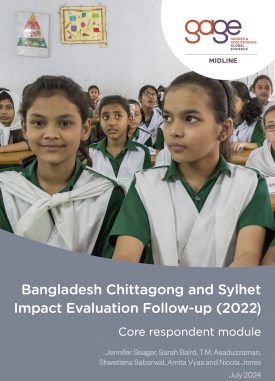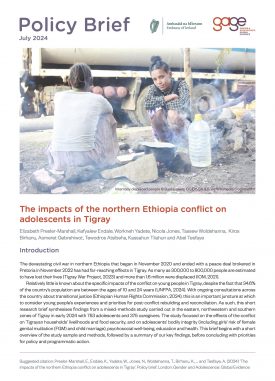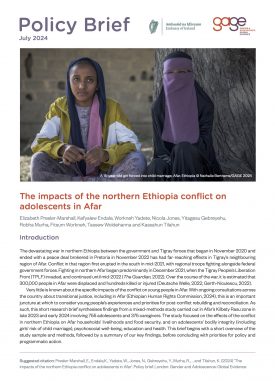Since 2019, Lebanon’s economy has been caught in an accelerating downward spiral, which the World Bank predicts will rank in the top three most severe global economic crises in the last 150 years. Food prices have now climbed more than 500%, over half of the country is living below the poverty line and the electrical grid is on the verge of collapse as fuel has become unavailable. For the 1.5 million Syrian refugees and nearly 200,000 Palestinian refugees living in Lebanon, the situation is even more dire.
In Lebanon, GAGE is running participatory research groups with 83 vulnerable Syrian, Palestinian and Lebanese adolescents. These young people are between the ages of 15 and 19 and live in host communities, formal refugee camps served by UNRWA (Palestinians), and informal tented settlements (Syrians). The participatory research groups were established in 2019 and meet every four to six weeks to discuss themes related to GAGE’s conceptual framework. This brief highlights headline emerging findings and provides links to fuller publications.
Suggested citation
GAGE consortium (2022) ‘Adolescent lives in Lebanon: what are we learning from participatory evidence? Lessons from participatory research with adolescents.’ Policy brief. London: Gender and Adolescence: Global Evidence. (https://www.gage.odi.org/publication/adolescent-lives-in-lebanon-what-are-we-learning-from-participatory-evidence/)


